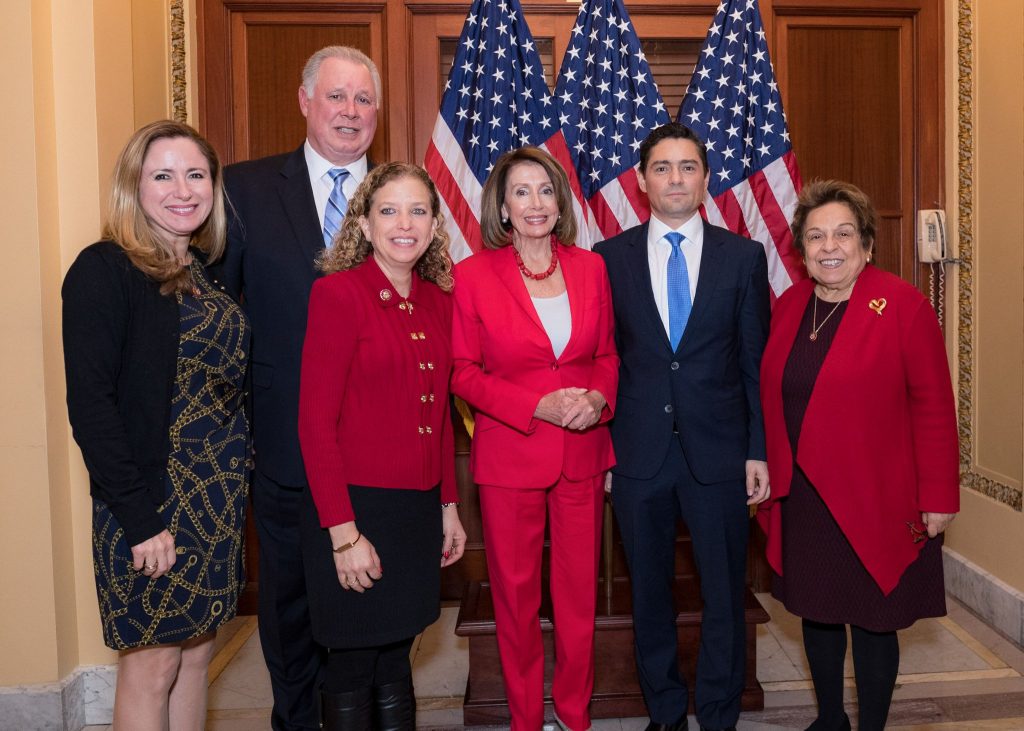We all aspire that the current conjuncture in Venezuela soon leads to free elections to enter into a sustainable transition that reconciles Venezuelans, while launching the complex institutional and economic reconstruction of the country. However, in the meantime, Venezuelans will continue to experience the prolonged and deep socio-economic crisis of humanitarian magnitude. Add to that, the impact that the US and other countries’ sanctions on the operation of PDVSA will have.
One consequence of this human drama is the migration of Venezuelans to the US; most of these immigrants are concentrated in Miami, Florida, and Houston, Texas. Throughout the country, it is estimated that at least 500 thousand Venezuelans live in the US. Out of them, at least 100 thousand are already US citizens. However, there is a large part of them whose immigration in the US is fragile. First, there are more than 40 thousand unresolved asylum applications, which in the last two years started to increase exponentially (on average, more than 10 thousand applications per year). Second, there are many people who struggle to legally extend their stay in the US, after entering with a tourist visa. Thousands of others remain undocumented, because of the complexity of the work visa system. Then, we have the young dreamers, Venezuelan children, who have also become undocumented in this crude fight for stability, which the Maduro regime denies them. Finally, there are thousands of university students, recent graduates, or graduates, looking for work in these latitudes (under the limited existing migration documentation options), because there are no opportunities for them in today’s Venezuela. Some of these young people have already started their families in the US.
The immigration issue is also a humanitarian tragedy. Donald Trump’s administration has done a lot in the field of foreign policy towards Venezuela, and that has generated, at this moment, the immense expectation of a favorable outcome. However, there is a missing piece for this administration to structure a coherent policy in the face of the Venezuelan humanitarian crisis. They need to address the immigration status of Venezuelans in the US. Yet, it is no secret that this government is not open to Latino migrants, and that includes Venezuelans. In fact, in the last two years, the deportations of Venezuelans in vulnerable situations have more than doubled. Immigration policies are key to address with justice the longing of the American-Venezuelan citizens who wish that their fellow country people have a stable situation, while improving things in Venezuela.
Moreover, it is worth highlighting the small quota for the approval of new visas or renewals at consular offices, imposed by the US Embassy in Caracas. Many parents and relatives of Venezuelans, who are citizens of the United States, aspire to reunify their family in the US while the hard crisis passes. Sometimes, they wish to do so for health reasons. The lack of medicines in Venezuela exposes many of its residents to risks, which their relatives in the US can avoid by giving them provisional entry into their homes. We must attend this very harsh reality, while continuing structured efforts to solve the crisis in Venezuela, including humanitarian aid for Venezuelans in the country or neighboring territories.
New Jersey Democratic Senator, Bob Menéndez, prepared a bill granting temporary relief or temporary protective status (TPS) to Venezuelans, which was backed by Republican Senator Marco Rubio. The same thing happened in the House of Representatives, under the leadership of Representative Darren Soto and his colleagues in the Florida Democratic delegation, which also included Debbie Mucarsel, Debbie Wasserman Shultz, and Donna Shalala. The initiative also has bipartisan support among the representatives, because Republican Congressman Mario Díaz-Balart, also from Florida, also signed it.

The truth is that Trump could agree to the TPS or immigration relief without a new law, under current immigration legislation. About two years ago, the former Florida Democratic Senator, Bill Nelson, suggested it. Legislators from both parties have resorted to presenting bills before the respective chambers, given that the Trump government has not been receptive of need for a law to grant immigration relief for Venezuelans. In fact, the administration has gone beyond to withdraw the TPS granted years ago to address other migratory crises, also of a humanitarian nature, to migrants from Central America, Haiti, and some African countries. Unfortunately, the drama cause by revoking the TPS from these impacted regions has led to judicial battles and uncertainty, while the Venezuelans have yet to be included in the TPS category.
It would be opportune, at this juncture, for president Trump to referrer to—as signal of having total support—the content of the two bills introduced to Congress, particularly if one thinks that the transition towards democracy and reconstruction in Venezuela is feasible in the short term, as a result of the foreign policy advanced with bipartisan support. And, based on the two bills, exercising his executive power, Trump could extend the TPS to Venezuelans who are in the US in a vulnerable migrant situation or already undocumented. It is what is expected; what is coherent.
Para español lea Al Navío ¿Qué espera medio millón de venezolanos en EEUU de Donald Trump?
